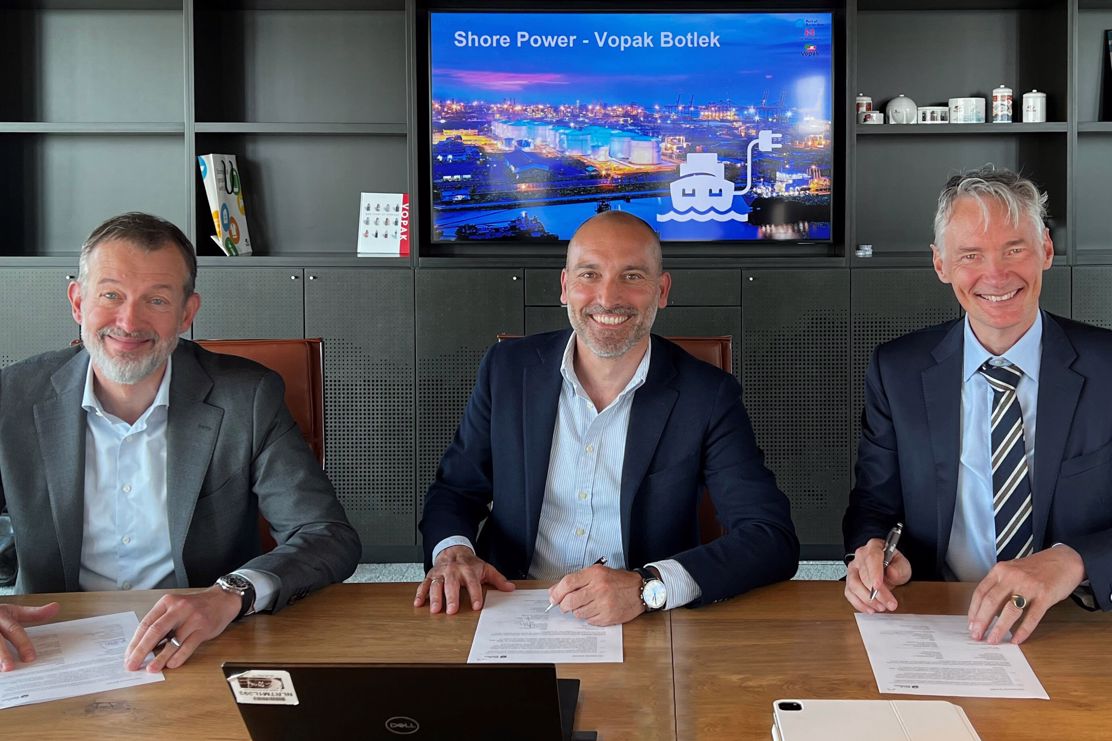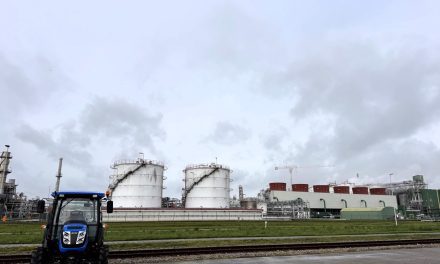
Walstroomproef bij Vopak in Botlek

V.l.n.r. Boudewijn Siemons (Havenbedrijf Rotterdam), Walter Moone (Vopak) en Lucas Vos (Stolt Tankers).
Bij de terminal van Vopak in de Botlek gaat een walstroomproef van start. De bevindingen zullen van belang zijn voor het wereldwijde vervoer van chemicaliën per schip.
Vopak, het Havenbedrijf Rotterdam en Stolt Tankers hebben hiertoe een memorandum of understanding (MOU) getekend. Het gaat om een zes maanden durende studie naar walstroom bij de terminal van Vopak in de Botlek.
Walstroomproef
Tankers die chemicaliën vervoeren moeten aan hogere veiligheidseisen voldoen dan andere schepen. Ook zijn er ‘technische obstakels’ te overwinnen, stelt Stolt Tankers in een persbericht. Het doel van de studie is om hiervoor effectieve oplossingen te ontdekken, die kunnen uitmonden in een internationale standaard.
Ambitie
“De beschikbaarheid van walstroom voor onze schepen kan het gebruik van dieselgeneratoren aan boord van schepen in de haven sterk verminderen, wat leidt tot een aanzienlijke vermindering van de uitstoot van broeikasgassen. Dit ondersteunt onze ambitie om onze broeikasgasemissie-intensiteit tegen 2030 met minstens 50 procent te verminderen ten opzichte van het niveau van 2008 – ruim meer dan IMO-doelstelling van 40 procent”, zegt president Lucas Vos van Stolt Tankers.
Zie ook: Upgrade infrastructuur Vopak Botlek
English translation
Shore power study at Vopak in Rotterdam
A shore power study is to start at Vopak’s terminal in the Botlek in Rotterdam. The findings will be of importance for the worldwide transport of chemicals by ship.
Vopak, the Port of Rotterdam Authority and Stolt Tankers have signed a memorandum of understanding (MOU) to this end. It concerns a six-month study into shore-based power at Vopak’s terminal in the Botlek.
Technical hurdles
Tankers carrying chemicals must comply with higher safety requirements than other vessels. There are also ’technical hurdles’ to overcome, Stolt Tankers states in a press release. The aim of the study is to discover effective solutions for this, which may result in an international standard.
Ambition
“The availability of shore-based power for our ships has the potential to greatly reduce the use of onboard diesel generators while ships are in port, resulting in a significant reduction of greenhouse gas emissions”, says President Lucas Vos of Stolt Tankers. “This supports our ambition to reduce ourGHG emissions intensity by at least 50% by 2030 compared to 2008 levels – well ahead of the IMO’s target of 40%.”









